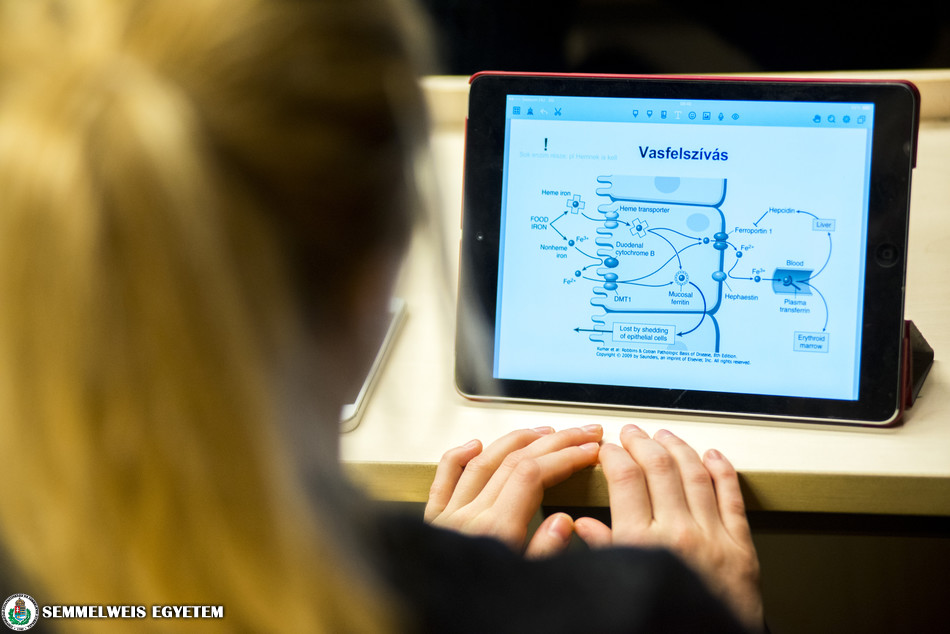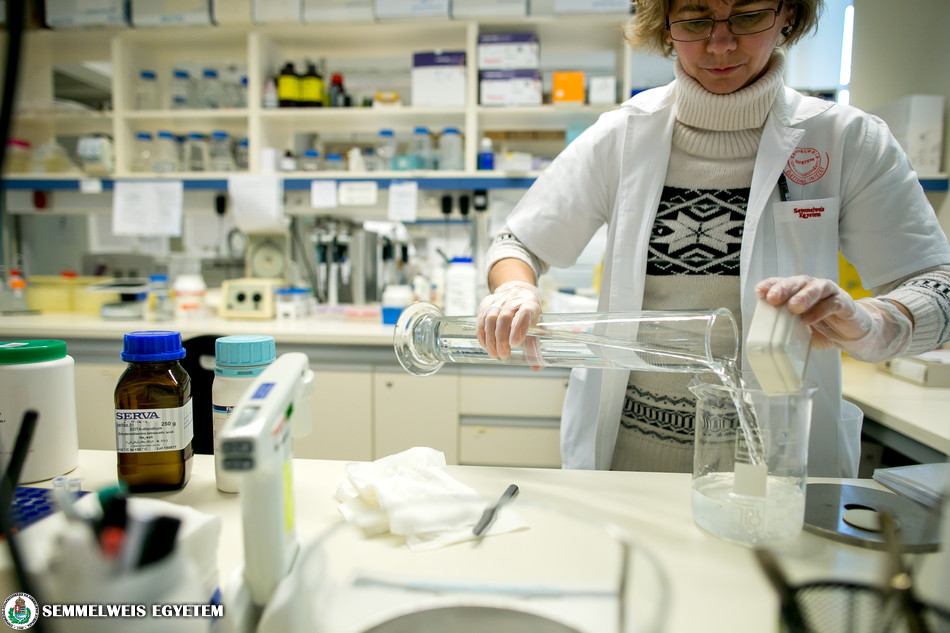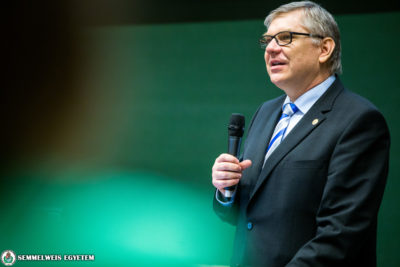The Department of Physiology is celebrating its 250th academic year with a series of nine online lectures organized until the end of June. The Department of Physiology is one of the five departments established at the foundation of the university, therefore it is of the same age as the institution itself. The first lecture of the jubilee series of events was held by Dr. László Hunyady, Head of the Department. At the opening of the online event, Dr. Béla Merkely, Rector and Dr. Tamás Freund, President of the Hungarian Academy of Sciences greeted the audience.
“Semmelweis University celebrated the 250th anniversary of its foundation in the 2019/2020 academic year, while this year’s academic year is the 250th in the life of the institution. As part of a series of jubilee celebrations organized on this occasion and extended due to the epidemic, the Department of Physiology will commemorate its 250th academic year with a series of lectures in the form of an online webinar, adapted to the epidemic situation. During the nine occasions, those interested may get acquainted with the outstanding scientific results of the current and former lecturers and researchers of the department The invited lecturers will be renowned researchers working in Hungary or abroad, who have started their professional careers at the Department of Physiology in the last 30 years”, said Dr. Béla Merkely.
The rector recalled that the Department of Physiology was the same age as the university, and when it was founded, the Institute of Physiology and Pharmacology was one of the first five departments. The “pharmacology” section was discontinued in September 1891, when the teaching of histology and pharmacology was taken over by other institutes.
Dr. Béla Merkely also mentioned that the reputation of the institute has been established by such excellent professors-directors as Ádám Ignác Prandt (1770-1786), Sámuel Rácz (1786-1806), Ferenc Bene (1806-1808), Mihály Lenhossék (1808-1819), Jenő Jendrassik (1860-1891), Nándor Klug (1891-1909) or Aladár Beznák (1935-1945). Five of its directors also served as rectors of the university.
As Dr. Béla Merkely pointed out, the Department of Physiology traditionally carries out high-quality, internationally recognized scientific activities, and since 1981 its profile has shifted significantly towards cellular and molecular physiology.

“The aim of the university and the rector’s program is to become one of the top 100 higher education institutions in the world and the best 5 healing institutions in Europe in its field within 10 years. In order to achieve this ambitious goal, I count on the colleagues who are teaching and doing research at the Department of Physiology”, the Rector emphasized.

“It is respectable on a historical scale as well that the department now has the opportunity to celebrate its 250th academic year, which has always been an important center of scientific life. This is indicated by the fact that ten of its 14 directors appointed since the founding of the Hungarian Academy of Sciences were members of the academy”, highlighted Dr. Tamás Freund, President of the Hungarian Academy of Sciences.
He also reminded the audience that originally the main purpose of founding the academy was to nurture the Hungarian language. The Department of Physiology was also a leader in this area: the first Hungarian-language medical textbook entitled “A Short Summary of Physiology” was written in 1789 by the then director of the institute, Sámuel Rácz, and later Jenő Jendrassik carried out the language renewal in the field of physiology. The introduction of many Hungarian physiological terms still used today is connected to his name.
“Today, one of the active-age lecturers of the department is a member of the Hungarian Academy of Sciences, four are doctors of the Hungarian Academy of Sciences, and 25 of them have a scientific qualification. It is an exceptional success that four of them have won the Momentum grant in recent years”, Dr. Tamás Freund said.
In his greeting, Dr. László Hunyady, department head, recalled that one of the important goals of the lecture series is to enable young people to get acquainted with the activities of their predecessors. The idea arose in connection with the earlier celebration of Dr. Erzsébet Ligeti, Professor Emeritus’ birthday, to which many colleagues working abroad were also invited. The program received the title “Outstanding Scientific Achievements of the Current and Former Teachers of the Department of Physiology in the Last Year of the 250 Academic Years”.
“Generations follow each other in the same way as stitches, and this refers to the relationship between mentor and student in science”, Dr. László Hunyadi provided an insight to the title of the program.

The first lecture of the program was held by Dr. László Hunyady entitled “G-protein independent signaling mechanisms and their therapeutic potential”.
He also briefly referred to the past of the department, mentioning several former leaders of the faculty, praising their outstanding activities. In connection with his two predecessors, Dr. Attila Fonyó and Dr. András Spät, he emphasized that their names were associated with the transition from classical physiology to cellular and molecular physiology, which brought a great deal of scientific success.
According to Dr. László Hunyady, the most important result of his 16 years of leadership activities is that those colleagues who returned home to the department from abroad after their postdoctoral work are still working at the department.
Pálma Dobozi
Photo: István Bielik, Attila Kovács – Semmelweis University, András Dimény
Translation: Katalin Illés-Romhányi


